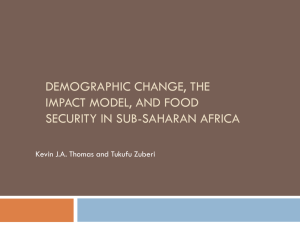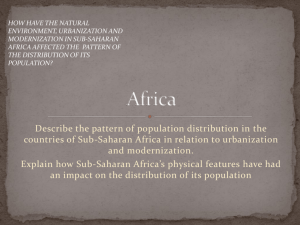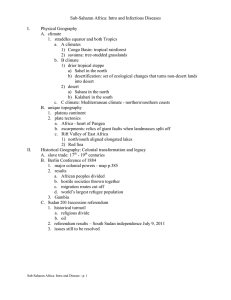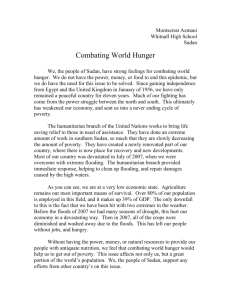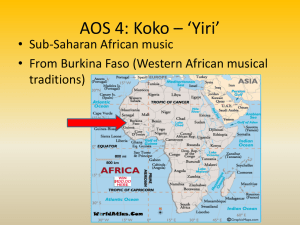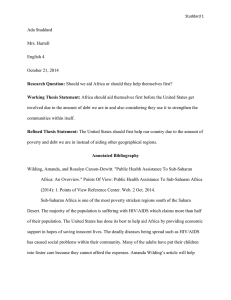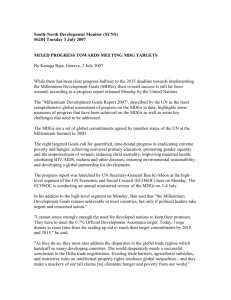Africa, By the Numbers - Waterford Public Schools
advertisement
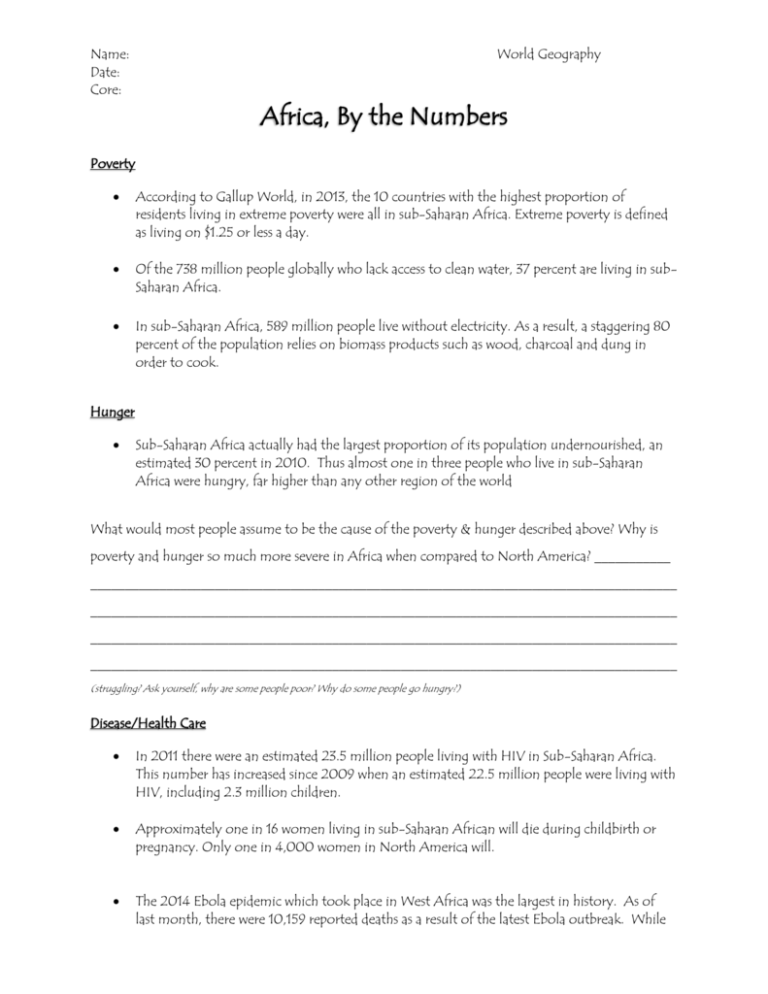
Name: Date: Core: World Geography Africa, By the Numbers Poverty According to Gallup World, in 2013, the 10 countries with the highest proportion of residents living in extreme poverty were all in sub-Saharan Africa. Extreme poverty is defined as living on $1.25 or less a day. Of the 738 million people globally who lack access to clean water, 37 percent are living in subSaharan Africa. In sub-Saharan Africa, 589 million people live without electricity. As a result, a staggering 80 percent of the population relies on biomass products such as wood, charcoal and dung in order to cook. Hunger Sub-Saharan Africa actually had the largest proportion of its population undernourished, an estimated 30 percent in 2010. Thus almost one in three people who live in sub-Saharan Africa were hungry, far higher than any other region of the world What would most people assume to be the cause of the poverty & hunger described above? Why is poverty and hunger so much more severe in Africa when compared to North America? ___________ _____________________________________________________________________________________ _____________________________________________________________________________________ _____________________________________________________________________________________ _____________________________________________________________________________________ (struggling? Ask yourself, why are some people poor? Why do some people go hungry?) Disease/Health Care In 2011 there were an estimated 23.5 million people living with HIV in Sub-Saharan Africa. This number has increased since 2009 when an estimated 22.5 million people were living with HIV, including 2.3 million children. Approximately one in 16 women living in sub-Saharan African will die during childbirth or pregnancy. Only one in 4,000 women in North America will. The 2014 Ebola epidemic which took place in West Africa was the largest in history. As of last month, there were 10,159 reported deaths as a result of the latest Ebola outbreak. While Ebola spread to countries outside of Africa, those countries were able to contain the spread of the disease (i.e. in the U.S., there was 1 reported death as a result of the epidemic). More than one million people, mostly children under the age of five, die every year from malaria. Malarial deaths in Africa alone account for 90 percent of all malaria deaths worldwide. Eighty percent of these victims are African children. The U.N. Millennium Project has calculated that a child in Africa dies from malaria every 30 seconds, or about 3,000 each day What would most people assume to be the cause of the disease & poor health care conditions described above? Why do African nations struggle to fight disease and provide adequate health care to their people when North American countries are able to do so better? __________________________ _____________________________________________________________________________________ _____________________________________________________________________________________ _____________________________________________________________________________________ _____________________________________________________________________________________ Conflict Thirty-eight percent of the world’s refugees are located in Africa. Due to continuing violence, conflict and widespread human rights abuses, the United Nations High Commissioner for Refugees (UNHCR) reports that 11 million people, including stateless people and returnees, exist in Africa. In 1994, nearly 1 million Rwandans were killed in 3 months due to conflict between te Hutu and Tutsi tribes In 2008, the United Nations estimated that between 200,000 and 400,000 people were killed in the Darfur region of Sudan as a result of armed conflict A March 2015 report fo0und that 15 African countries are involved in war or experiencing post-war conflicts. The countries include: Eritrea, Ethiopia, Somalia, Sudan, Uganda, Burundi, Rwanda, Angola and Zimbabwe. What would most people assume would be the cause of the conflict described above? Why is there so much more conflict in Africa than in North America? ______________________________________ ____________________________________________________________________________________ _____________________________________________________________________________________ _____________________________________________________________________________________ _____________________________________________________________________________________ _____________________________________________________________________________________ _____________________________________________________________________________________
